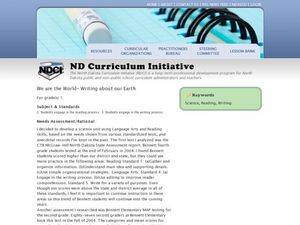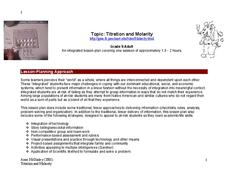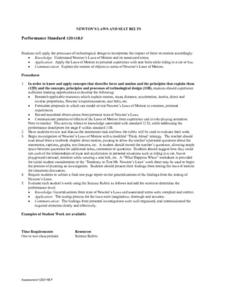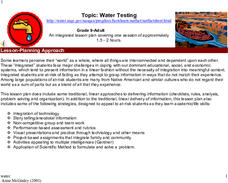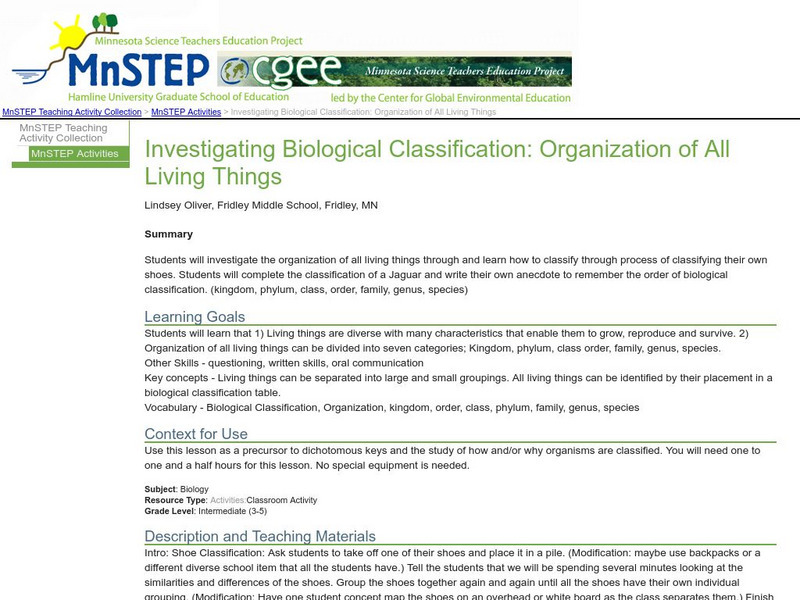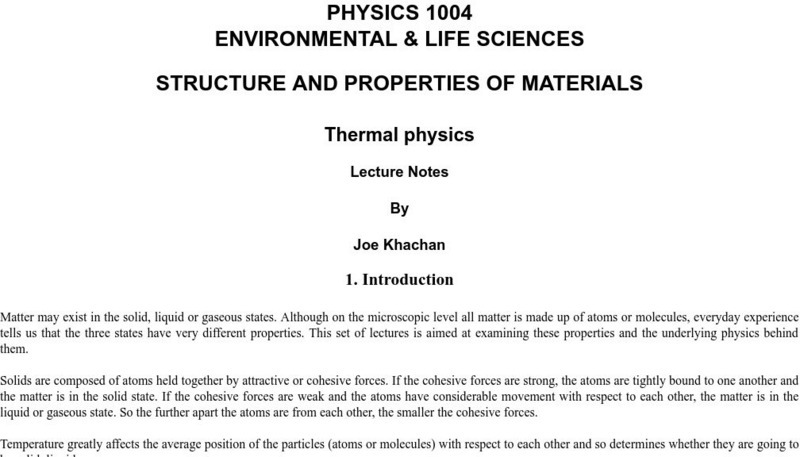Curated OER
We are the World - Writing about our Earth
First graders write facts about the Earth. In this Earth lesson, 1st graders discuss natural resources, recycling, and how to keep the Earth clean. They work in groups to create a small book with 3-5 facts about the Earth's environment.
Curated OER
Liquids in Bottles
Students investigate different liquids to develop their concept of a liquid. They work at a center to tip, swirl, shake, roll, and otherwise investigate seven liquids in small, clear plastic bottles: plain water, corn syrup, liquid...
Curated OER
Cheetah Challenges
Learners research the problems that cheetahs are facing in the wild. In this biology lesson, students discuss how animal rehabilitation works. They write blogs about it and comment on everyone's post.
Curated OER
Building a Volcano
Students research volcanoes and then build one out of salt dough. Before the final step is completed, they find main ideas about volcanoes, write sequential steps to building, use correct grammar, to gain knowledge about them. There is...
Curated OER
Living With Risk: The Human Element of Natural Disasters
Students explore human elements that are a part of natural disasters, read a Hawaiian myth, conduct a survey, discuss why people choose to live in high risk areas, and participate in a writing activity based on studenT real life accounts...
Curated OER
How Atoms Work
Students analyze the way atoms function and how they combine to form molecules and various compounds. Using a software program, they create a diagram of an atom and write a summary about their functions. They complete a worksheet and...
Curated OER
Case of the Missing Cookies
Students imagine they are a detective who has been asked to solve the theft of cookies from a jar in the student cafeteria. Students practice using the steps of the scientific method to solve the crime. Finally, students write a detailed...
Curated OER
Titration and Molarity
Students are introduced to the concepts of molarity and titration. As a class, they develop a list of the correct steps they need to follow to create a specific concentration of a solution. They design and complete an experiment in...
Curated OER
How Atoms Work
Students explore the concept of atoms and how they combine to form molecules and compounds. In pairs, they read an article on how atoms work and discuss the main points. They draw atoms and write a paragraph about their elements.
Curated OER
Titration and Molarity
Young scholars investigate the concept of molarity and its relationship to the concentration of a solution. After mixing chemical solutions, they calculate how many moles of acid and base should be in each solution. They record their...
Curated OER
Newton's Laws and Seat Belts
Students study Newton's Laws of Motion. They review an assessment task and rubric and discuss Newton's Laws of Motion. They discuss how to test the relationships of mass and acceleration in personal situations. They write a one-page...
Curated OER
Mancos River Walk Newsletters
Sixth graders create newsletters of the Mancos River Walk. They gather information from the Mancos River Walk and create a newsletter detailing sections of trees, shrubs, river studies, and wildlife studies. They write stories and...
Curated OER
Water Testing
Students work together to design their own experiment to test developed hypothesis about the minerals in water. As a class, they discuss the main components of water quality and describe the chemistry behind the hardness assay. They...
Curated OER
We're Environmentally Friendly
Fourth graders examine written works dealing with environmental issues and resolutions during a 5 week unit. They create posters, poems, and rap songs demonstrating authorship and knowledge of the environment.
Curated OER
Everything's Under Control
Fifth graders prepare for a "Mad Scientists Fair" by creating a controlled study and by conducting experiments. They make and record observations and classify specimens according to characteristics. They compare results to their original...
Curated OER
Robert Boyle's Informants
Students review and discuss the importance of Boyle's informants and how he sometimes relied on information from those with experience of the wider world to substantiate his scientific theories. They complete the worksheet, answering...
Science Education Resource Center at Carleton College
Serc: Investigating Biological Classification: Organization of All Living Things
All living things can be identified by their placement in a biological classification table. Students will investigate the organization of all living things and learn how to classify through the process of classifying their own shoes....
University of Sydney (Australia)
University of Sydney: Structure and Properties of Materials/thermal Physics
An exhaustive set of "lecture notes" on various topics in thermal physics (including thermal expansion). Explanations are well done and more interesting than most. Includes both a mathematical and conceptual treatment of topics. Humor,...
